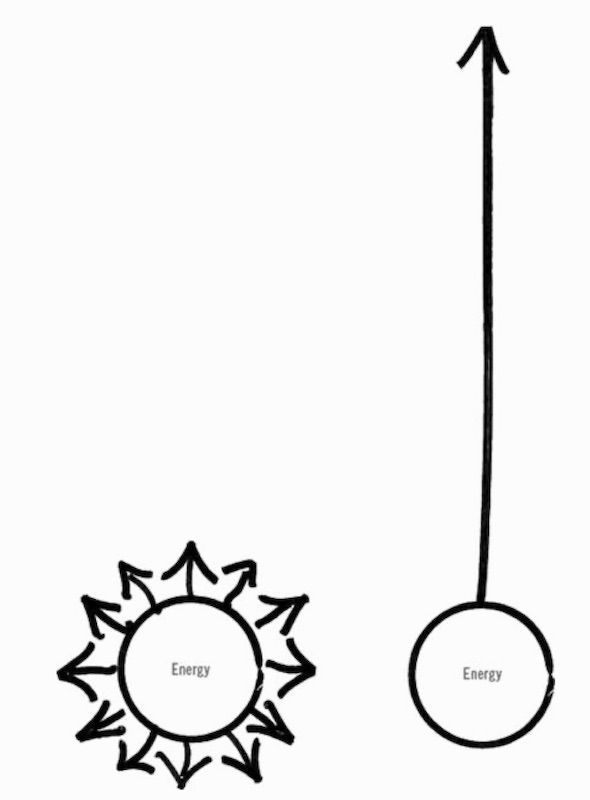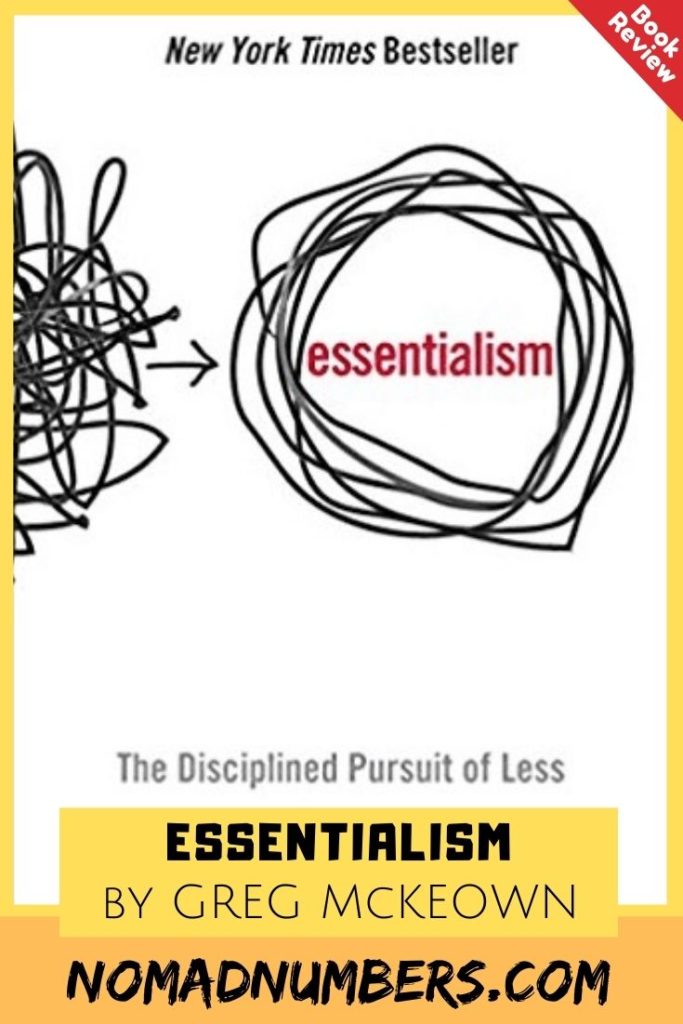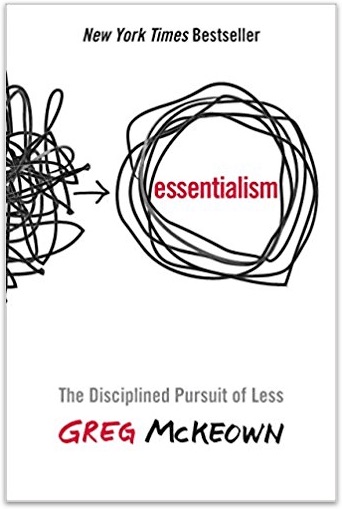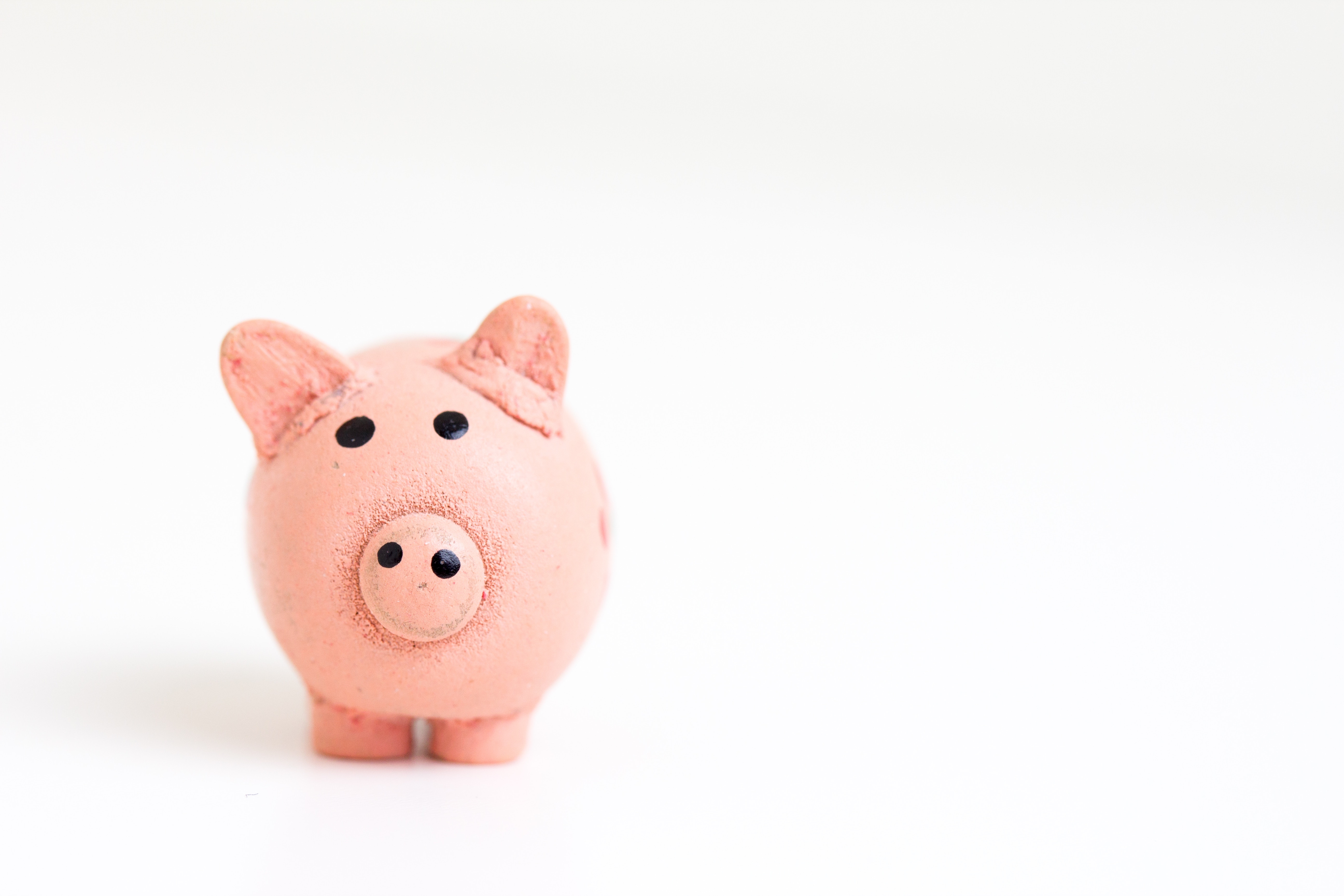Because knowledge is power and books are a very inexpensive way to consume more knowledge in a short amount of time, we have made reading part of our daily routine. While we aren’t reading every single day, we strive to read at least one book per month. Once we are done reading one, I personally like to summarize it in a full spread in my journal and incorporate specific action items that I can implement from that book in my own life.
In this article, I will be going over the book Essentialism: The Disciplined Pursuit of Less from Greg McKeown that I read in March 2020. I will discuss what the book is about, what is my take away from it, and the specific action items I implemented in 2020 from it.
“Only once you give yourself permission to stop trying to do it all, to stop saying yes to everyone, you can make your highest contribution towards the things that really matter.”
The basic value proposition of Essentialism
Are you ready to dig into Essentialism and get more productive?
Some links to the products mentioned below are affiliate links, meaning that if you click and make a purchase, we (Nomad Numbers) may receive a commission at no additional cost to you. For more information please review our disclaimer page.
Why Essentialism?
“The way of the Essentialist is […] the path on which we enjoy the journey, not just the destination”
Excerpt from “Essentialism: The Disciplined Pursuit of Less”
(from Greg Mckeown)
I picked up this best-seller after it was recommended by a couple we met while taking a cooking class in Chiang Mai, Thailand. I mentioned to them that we were into minimalism and slow living and they thought this book would be a good complement.
What is the book about?
This book fits into the personal development category which is my favorite type of book I’ve been reading for the past couple of years because they are 1) easy to read, 2) packed with actionable content that you can implement to improve your quality of life.
Essentialism shows a new way of thinking about productivity and life through the lens of the “Essentialist”, who distinguishes the vital few from the trivial many, eliminates the nonessentials, and removes obstacles.
“If you don’t prioritize your life, someone else will.”
Excerpt from “Essentialism: The Disciplined Pursuit of Less”
(from Greg Mckeown)
Throughout this book, the author makes side by side comparisons between “Essentialists” and “Non-Essentialists” which makes it easy for you to know in which camp you belong.
The “Essentialist” will apply discipline to decide what activities to sign-up for and what activities to let go of. Which results in the ability to achieve more by doing less (which might sound like a paradox at first).
The book uses the following illustration to explain the difference between the way of the “Essentialist” and the way of the “ Non-Essentialist” that I think is pretty spot-on:

On the left figure, there isn’t much progress being made as the effort is spread over many activities. While on the right figure, the effort is channeled towards only a few activities that matter, which in turn allows for massive progress to be made. (Note: The same amount of effort is applied to both figures).
People who operate in the first scenario would like to make no noticeable progress and will live a life that doesn’t feel satisfying. While people who operate in the second scenario will make meaningful results and live a life that matters to them.
This book is structured in 4 major sections: Essence, Explore, Eliminate, and Execute. The first outlines the core mind-set of an Essentialist. The next 3 is a process for the pursuit of less. Each section compares the Essentialist (E) mindset to the Non-Essentialist (NE) mindset.
Here is my short digest of each section and the respective items.
Essence
“The way of the Essentialist is the relentless pursuit of less but better.”
Excerpt from “Essentialism: The Disciplined Pursuit of Less”
(from Greg Mckeown)
In this section, you understand the core mindset of an “Essentialist”.
| Non-Essentialist | Essentialist | |
| Choose | I don’t have the right to choose | I choose to exercise the power of choice |
| Discern | Almost everything is essential. View opportunities as basically equal | Almost everything is non-essential. Distinguishes the vital few from the trivial many |
| Trade-off | Ask how I can do it all | Ask what is the tradeoff to make. What can I go big on? |
1 – Explore
In this section, you learn how to explore options. These principles actually are similar to the ones described in the book Designing Your Life: How to Build a Well-Lived, Joyful Life (by Bill Burnett & Dave Evans).
| Non-Essentialist | Essentialist | |
| Escape | Is too busy to think about life | Create space to escape & explore life |
| Look | Pay attention to the louder voice. Hears everything being said. Is overwhelmed by all the information | Pay attention to the signal in the noise. Hears what is not being said. Scan to find the essence of the information |
| Play | Thinks play is triggering & unproductive waste | Knows play is essential & sparks exploration |
| Sleep | 1 hour of sleep = 1 less hour of productivity. Sleep is for failure & gets in the way. Sleep is a luxury | 1 hour of sleep leads to many hours of productivity. Sleep is for high performers & breeds creativity. Sleep is a priority |
| Select | Says Yes to almost every request or opportunity. Use brand, implicit criteria like: “if someone I know is doing it, I should do it”. | Says Yes to only 10% of opportunities. Use narrow, explicit criteria like: “Is this exactly what I am looking for?” |
2 – Eliminate
In this section, you learn how to get rid of waste. (or what is not really important for us to focus our energy on).
| Non-Essentialist | Essentialist | |
| Clarify | Has no guiding principles to implement. | Makes one decision that eliminates 100 later ones. |
| Dare | Says Yes to everything. Avoid saying No to avoid feeling socially awkward and avoid social pressure. | Dares to say No firmly, resolutely, and gracefully. Say Yes to only what matters. |
| Uncommit | Hates admitting mistakes. | Comfortable with cutting losses. |
| Edit | Thinks that more is better | Eliminates the distracting / Subtracts |
| Limit | Limits make you limited. Boundaries are constraints. | Limits make you limitless. Boundaries are liberating |
3 – Execute
In this last section, the book covers items to remove obstacles and makes execution effortless.
| Non-Essentialist | Essentialist | |
| Buffer | Assumes best-case scenario. Forces execution at the last minute. | Builds in a buffer (50%). Practices extreme and early preparation |
| Substract | Do more / Quick fix solutions. | Removes obstacles |
| Progress | Starts w/ big goals & gets small results. Goes for the flashiest wins. Does the minimal viable prep. | Starts small & gets big results. Celebrates small acts of progress. Focuses on Minimal Viable Progress |
| Flow | Tries to execute the essential by force. Allows non-essential to be the default | Designs a routine that enshrines. Makes the essential default position |
| Focus | Mind is thinking about the past or future. Thinks about what was important yesterday or tomorrow | Mind is focused on the present. Enjoy the moment. |
Take away
What I enjoyed the most in this book is that it builds on the concepts of minimalism (keeping only what brings you joy in your life) and applies them to your own productivity. The way the book is written makes it easier to identify in which camp you are for each section with specific techniques so it is easier to assess where you are and what to do in order to fit more into the “Essentialist” mindset.
“The way of the Essentialist means living by design, not by default”
Excerpt from “Essentialism: The Disciplined Pursuit of Less”
(from Greg Mckeown)
I also found this book was a great addition to the book Designing Your Life: How to Build a Well-Lived, Joyful Life (by Bill Burnett & Dave Evans) that explains how to use design thinking to create a meaningful, joyful, and fulfilling life.
Action items
Before reading this book, we already took specific actions on our life once we started to slow travel the world. By reusing the book’s key principles, here are some of them: :
- SLEEP – We make our sleep a priority by striving to go to bed no later than 10 pm, keeping our bedroom a sleep sanctuary, and disconnecting early from our smart devices. I am also obsessed with tracking sleep efficiency so I bought an Oura ring to see how efficient my sleep is. The ring provides useful insights through our journey of slow travel as our sleep environment changes with each country we visit.
- LOOK – By journaling daily + looking back at my daily achievements on a regular basis, I can identify patterns of what I do well, what I should be doing more of, and also how I am developing the habit I want to work on. Journaling has definitely been a great way to find the essence of what matters to me.
- PLAY – Through slow travel, we are focusing our effort on exploring the world and focusing on fun things along the way. Being Financially Independent lets us do this without having to worry about the stress of a mandatory job, which has made the experience much more relaxing and quite amazing actually.
- ESCAPE – By carving dedicated time for reading or for creative work, we get to escape from our own daily routine and allow ourselves space to grow on both a personal and relationship level.
“There are far more activities and opportunities in the world than we have time and resources to invest in that is it important to always paused and ask ourselves if we are signing up for the right activities.”
Excerpt from “Essentialism: The Disciplined Pursuit of Less”
(from Greg Mckeown)
After reading the book, I noticed some areas where I was still following a “Non-Essentialist” mindset. These are areas I am still trying to get better at thanks to the insight from the book.
Let’s take the example of this blog to call out a couple areas I’ve been improving on this year:
- SELECT – I started the Nomadic interview series in 2019 and I have since published 20+ interviews of couples or individuals to highlight their life design choices. As these interviews have gained popularity, I realized that it was easier for me to publish all one I received requests from as I got free content to publish on the blog. But as I closed the first season in early 2020, I also realized that I did not have a strong overall story from the guests I had on the first 12 episodes. I changed this as I launched season two earlier this year by deciding what the season would be about first and then selecting the guests I wanted to have on the series.
- FOCUS – It is still too easy for me to jump from writing a blog post to making improvements to our travel tool which overtakes time on other activities. I’ve started measuring this by tracking time spent on activities done on my laptop and I might start blocking time on my calendar so that other activities aren’t being affected by too much enthusiasm related to the blog.
So that’s it about Essentialism: The Disciplined Pursuit of Less. If you haven’t read it, I highly encourage that you get yourself a copy on Amazon or at your local library!
What about you? Do you ever feel busy but not productive? Do you easily say yes simply to please & without really thinking about it? Do you wonder: “Why did I sign up for this?”. Maybe you should then consider reading Essentialism! If you already read this book, please share your personal takeaway as well as any action you implemented from the book!
Also, if you are interested to read other life-changing books, check out our curated list of books that have had the most impact on our lives!





4 Comments
Abbas Gassem · November 2, 2020 at 8:38 am
Thank you for sharing this, added Essentialism to my reading list.
I think in ever more busy world and so many choices competiting for our attention; some discipline goes a long way.
Mr. Nomad Numbers · November 2, 2020 at 9:10 am
Thanks Abbas! Totally agree with your perspective. Not only we have too many competing choices, we also feel the societal pressure to work 24/7 which tend to make us miserable at the end, especially when trying to please everyone. Please come back to share your experience about this book once you get to it!
Caroline at Costa Rica FIRE · November 6, 2020 at 12:03 am
One of my favorite books on paring to the essential is The One Thing by Gary Keller. What is one thing that you could do that would make everything else easier or unnecessary? He asks a brilliant question!
Mr. Nomad Numbers · November 6, 2020 at 2:33 am
Hi Caroline. I’ve added it to my reading list. Thanks for the recommendation!